Our research team has finished up data collection from the 2018 field season, and what a season it was! Pacific Whale Foundation has been studying humpback whales in Hervey Bay for over 30 years, providing us with long-term sightings data in the form of our South Pacific Humpback Whale Catalogue. In 2018, we took over 10,000 research photos onboard Ocean Defender, including flukes, dorsal fins, injuries or skin lesions, and photos of the genital area to determine sex. We are still processing the data, but several of the whales from the early part of the season have been new to our catalog. Since subadults comprise the majority of pods in the beginning of the season, and the population is estimated to be steadily increasing, this result is somewhat expected, and we look forward to finding out how many additional new animals we may have as well as how many repeat visitors we have seen this season.
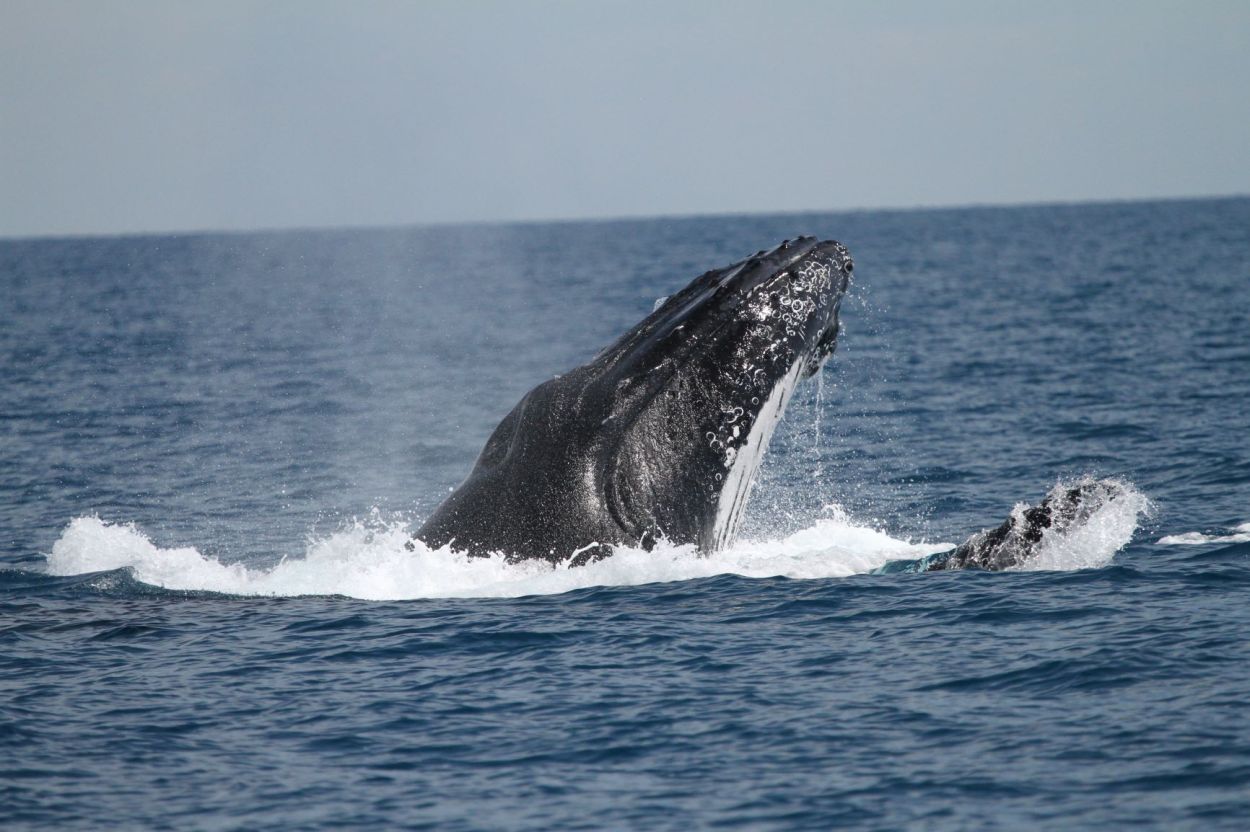
Our research team captured a variety of behaviors, including competitive behavior. 
Tail slapping 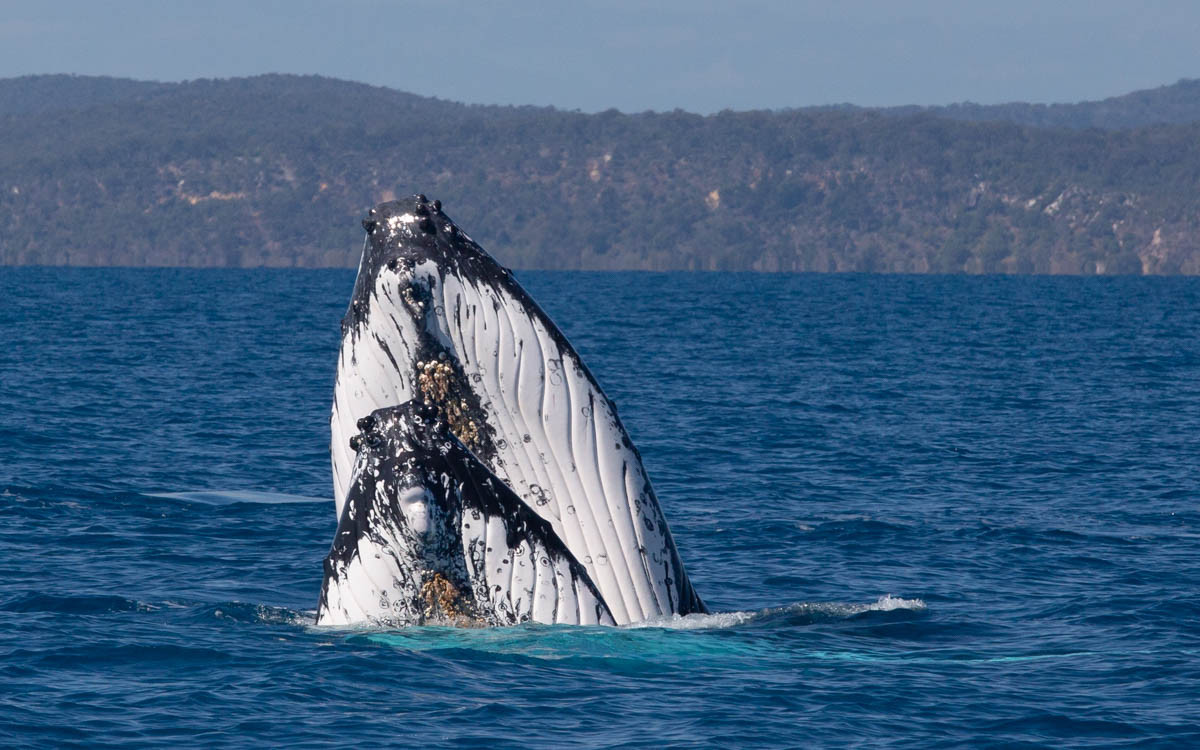
Double Spyhop 
Photos of other parts of the whale’s body can be useful for health assessment. 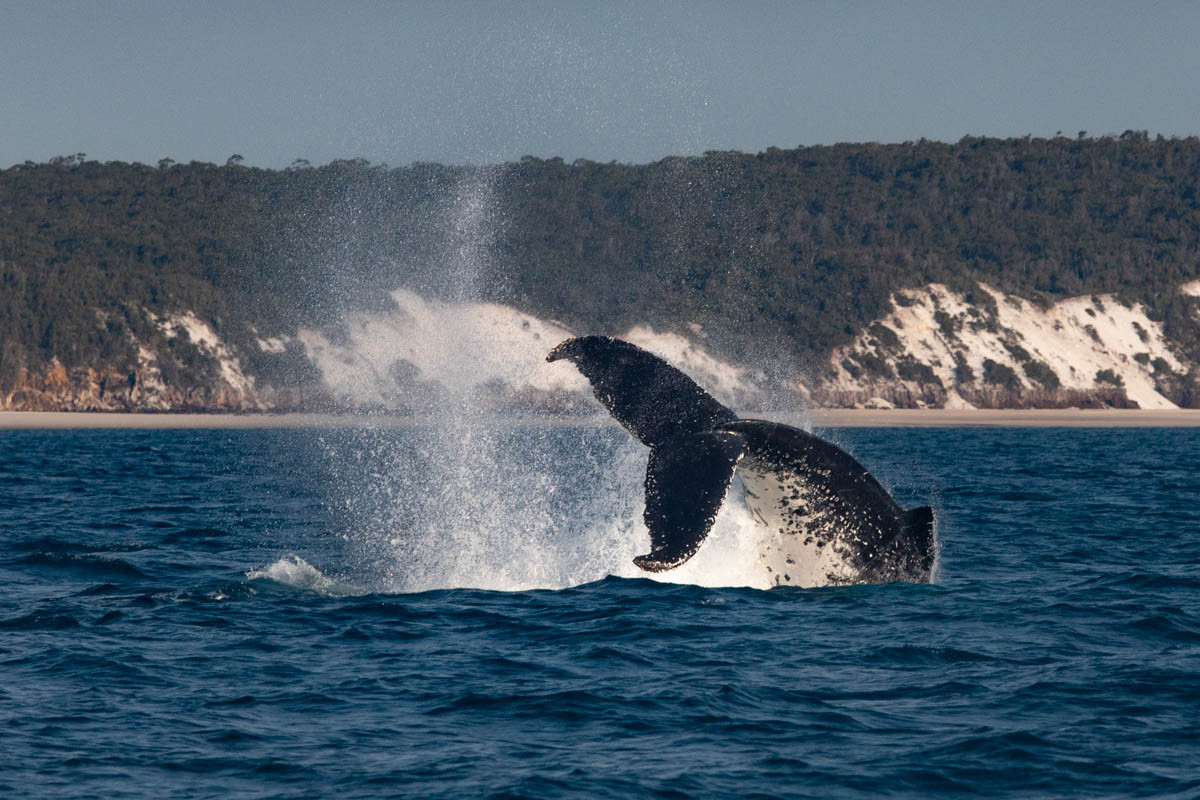
Peduncle Throw 
Fluke images are the most useful for photo-identification.
Along with our ongoing photo-identification work, this year was the first in our Swim-With-Whales Impact Study. We completed 19 trips towards this research study with 134 total swimmers who helped to make this study possible. This study allows our researchers to assess whether commercial swim-with-whales operations in Queensland are affecting the behavior of humpback whales. Using detailed behavioral observations before, during, and after swimmers are in the water with whales, we can look for patterns and changes in the whales’ behaviors; any such patterns can help determine best practices for this new, immersive form of tourism.
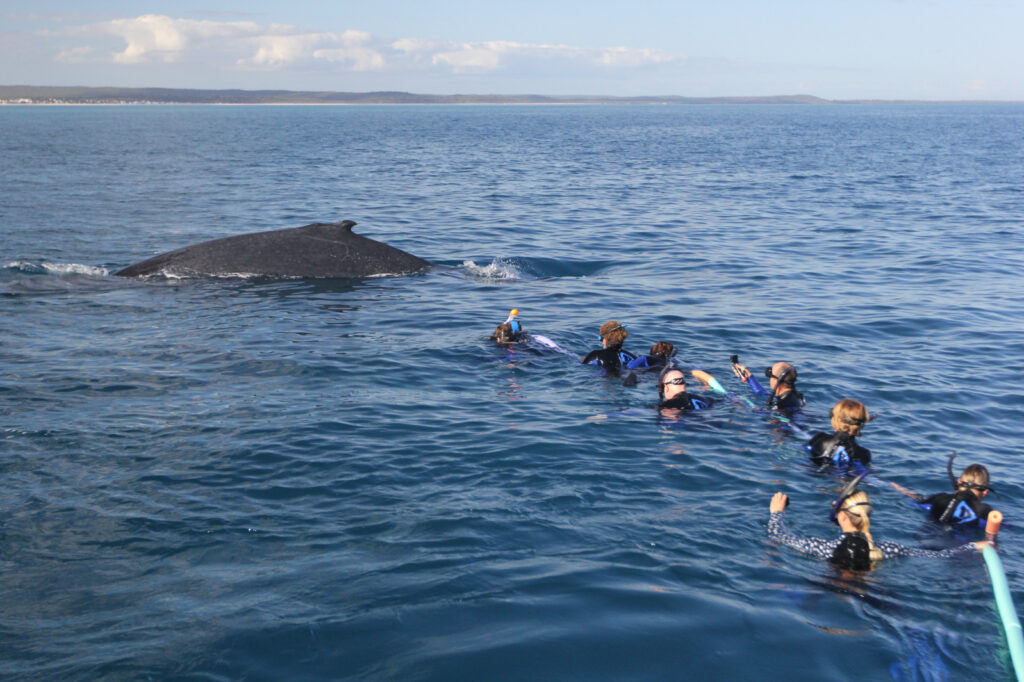
Some whales came in for incredible close approaches on their own terms 
By observing the behavior of the pods, we can begin to look at any impacts of this relatively new form of tourism in Queensland 
Swimmers look for a whale while holding the mermaid line
Another highlight of the season was the number of different species seen on our trips. Along with our familiar humpback whales, we saw southern right whales, bottlenose dolphins, Australian humpback dolphins, dwarf minke whales, dugongs, green sea turtles, loggerhead sea turtles, a hammerhead shark, a tiger shark, dingoes, and several species of seabirds. Although we don’t specifically study these species, it is always exciting to see the other inhabitants of this very special ecosystem.
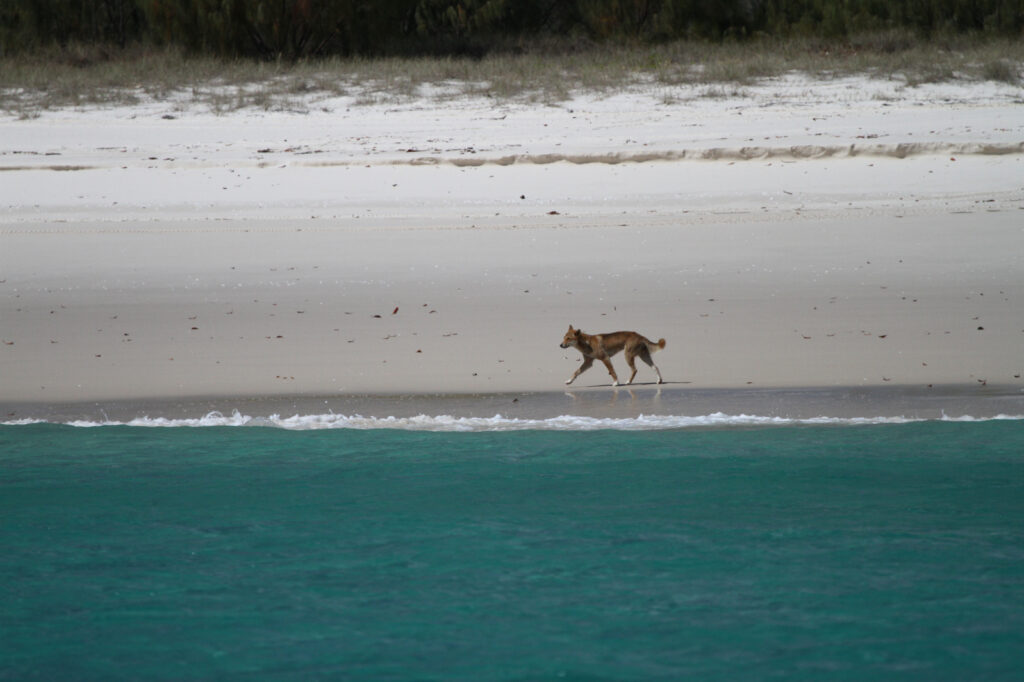
A dingo on Fraser Island 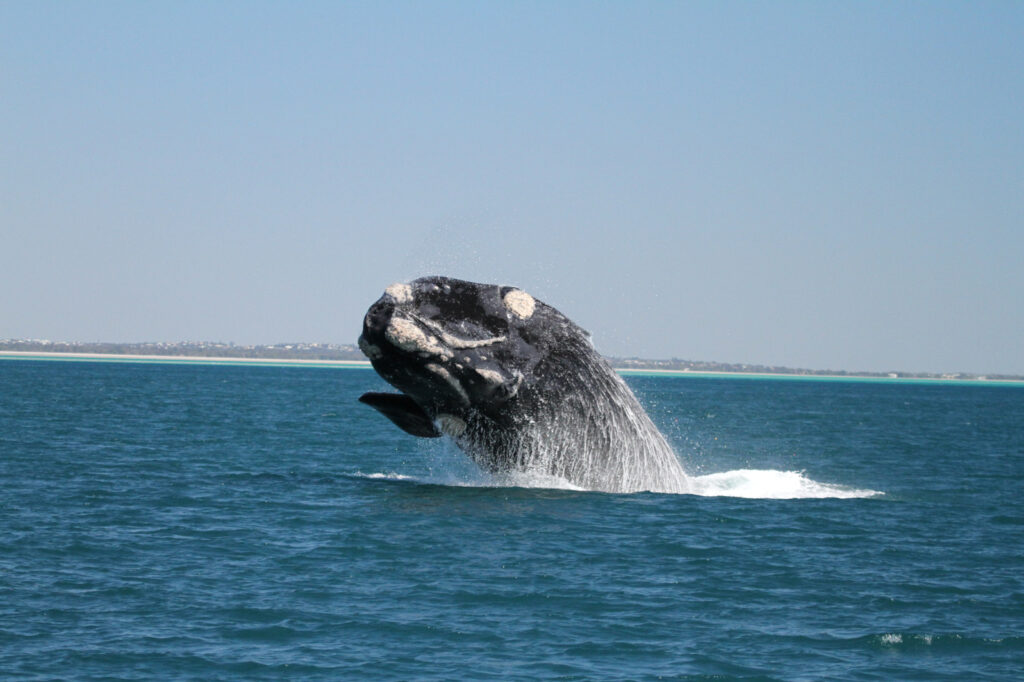
Breaching right whales are incredible to see, and they offer a great opportunity to view patterns of callosities from different angles. 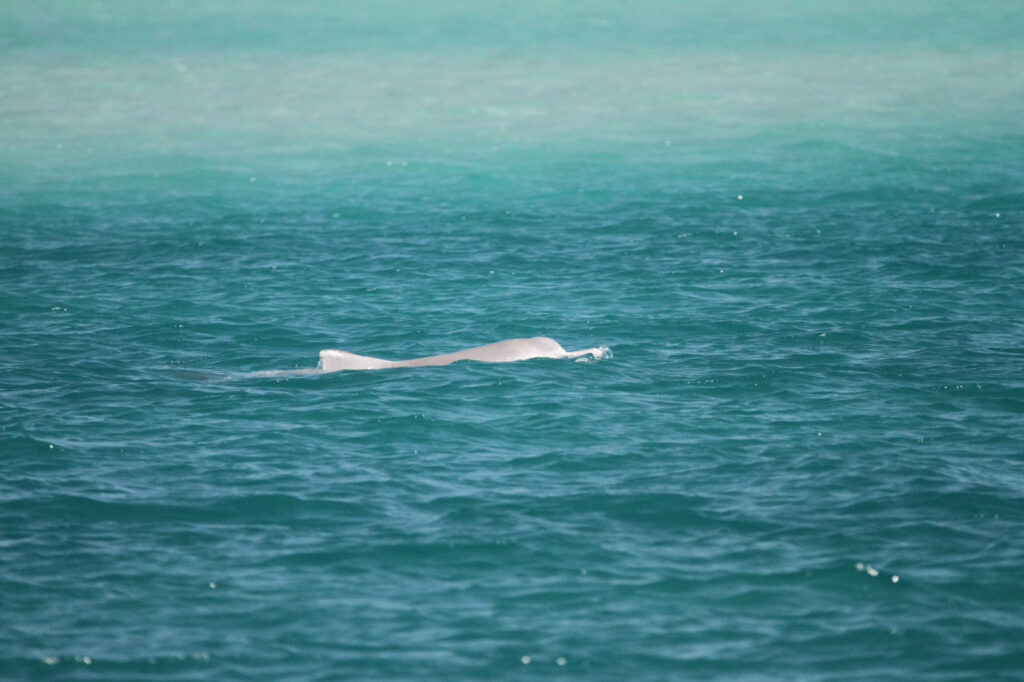
Australian humpback dolphin (Sousa sahulensis)
